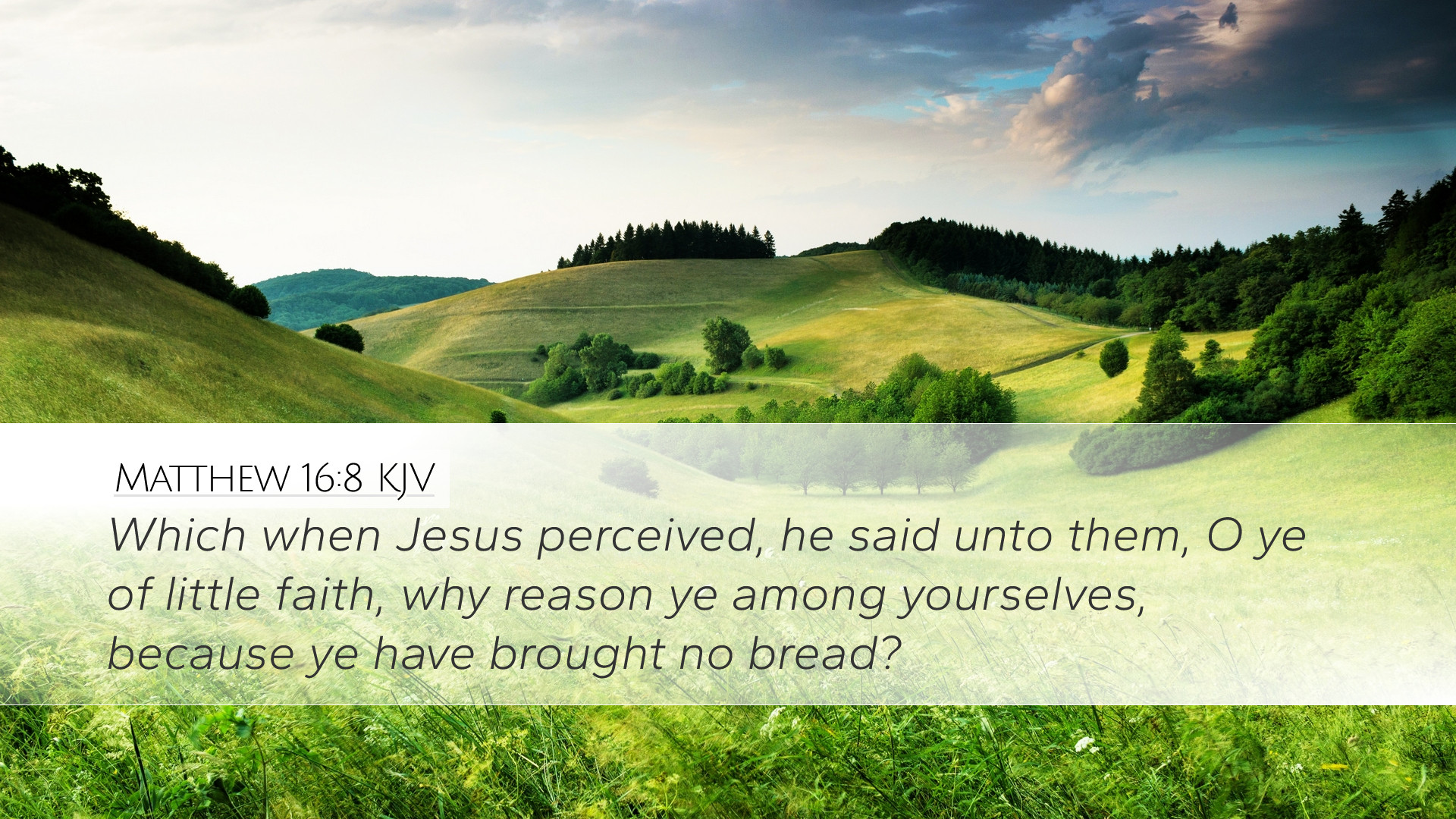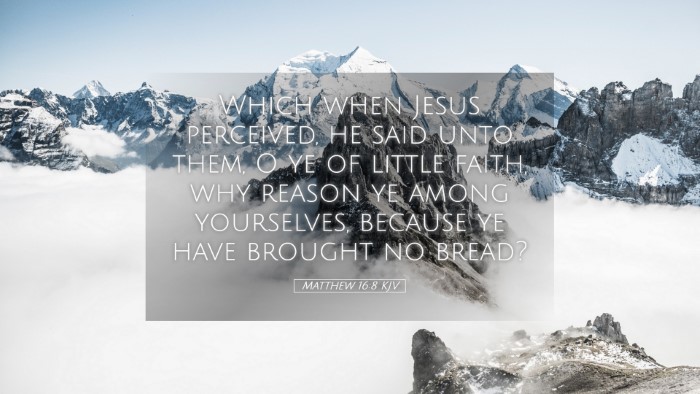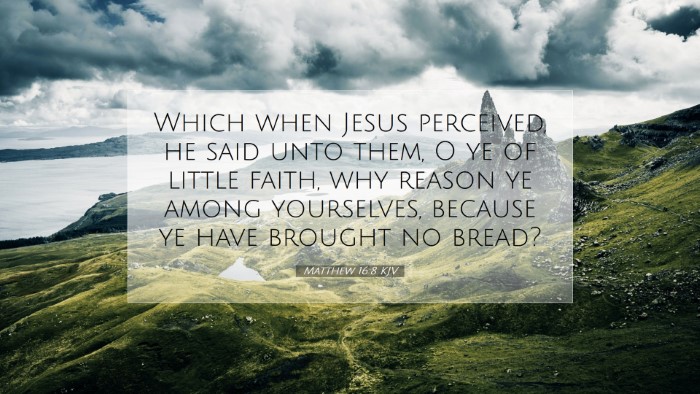Commentary on Matthew 16:8
Verse Context: Matthew 16:8 states, “Which when Jesus perceived, he said unto them, O ye of little faith, why reason ye among yourselves, because ye have brought no bread?” This verse arises within the narrative of the disciples misunderstanding Jesus' teaching, further investigated through reflection on faith, provision, and spiritual insight.
Introduction
The passage of Matthew 16:8 serves as a crucial point of reflection for pastors, students, and theologians. It underscores a recurring theme in Jesus’ ministry, which is the emphasis on faith amidst misunderstanding. The phrase “O ye of little faith” reiterates the ongoing struggle of the disciples to grasp the deeper realities of Jesus’ message.
Matthew Henry's Commentary
Spiritual Application
Matthew Henry points out that the disciples' concern over physical bread illustrates a failure to comprehend Jesus’ true nature and purpose. Despite witnessing numerous miracles, they still find themselves preoccupied with earthly concerns. Henry highlights that Christian faith requires a reliance on God’s provision, transcending material worries.
Lessons on Faith
Henry elaborates that “little faith” often emerges when believers allow their circumstances to cloud their understanding of God’s sufficiency. He encourages the faithful to refocus their attention from temporal provisions to the eternal promises of God. This orientation toward faith over fear is the crux of Jesus’ admonishment.
Albert Barnes' Commentary
Understanding the Disciples' Mindset
Albert Barnes examines the historical and cultural backdrop that led to the disciples’ confusion. He posits that their anxieties about bread stem from their recent miracle experience (the feeding of the 5,000 and the 4,000) where they had enough sustenance provided by Christ. The disciples’ reasoning indicates a lapse in memory regarding Christ’s previous miracles.
Faith versus Reason
Barnes further discusses the concept of human reasoning in contrast to divine faith. He underscores that faith does not fully dismiss human concerns but elevates them to the acknowledgment of divine competence. He asserts that true faith relinquishes worry and embraces the promise that God will provide, illuminating the tension between human anxiety and divine assurance.
Adam Clarke's Commentary
The Nature of Jesus’ Rebuke
Adam Clarke interprets Jesus’ rebuke as a direct challenge to the disciples’ lack of discernment. Clarke notes that such reprimands are proposed not as mere criticism but as an invitation to deepen their understanding of Jesus’ mission and power. He argues that Christ critiques their inability to see beyond their immediate physical needs.
Encouragement for Growth
Clarke emphasizes that the call to deeper faith is a journey rather than a destination. The disciples, like many followers today, must navigate their spiritual growth through times of doubt. Clarke encourages contemporary believers to acknowledge their struggles and to seek growth in faith through consistent reflection on Christ's works and words.
Theological Implications
This passage invites several theological reflections, including the nature of faith and its implications for discipleship. It invites one to consider the often-limited human perspective versus the expansive divine reality.
- Divine Provision: The assurance that God provides is a pivotal theme. Jesus highlights that faith should compel believers to trust in His sufficiency.
- Call to Deeper Understanding: The continual invitation to grow in understanding God’s ways becomes apparent. This requires an active engagement with Scripture and a community of faith.
- Challenge of Immediate Circumstances: The admonishment addresses the perennial struggle faced by believers. How often are we ensnared by immediate concerns at the expense of recognizing God’s divine power?
Conclusion
Matthew 16:8 serves as a rich text prompting believers toward an expanded understanding of faith. The collective insights from public domain commentaries weave a narrative that encourages trust, reflection, and growth in the face of doubt. Pastors, students, theologians, and scholars are invited to delve deeper into this narrative as it continues to hold relevance in contemporary spiritual journeys.


